Commuters on computers: how is technology changing the way we live in our cities?
Smartphones, air pods and the internet are now essential items in many city-dwellers’ survival packs. In the hustle and bustle of the morning rush-hour, unplugged commuters are a rare sight. For better or for worse, the physical and digital worlds of our cities are becoming increasingly intertwined. Dr Philipp Rode and Sudeep Bhargava, from the London School of Economics and Political Science in the UK, are investigating how these so-called hybrid cities are changing, and what they will look like in the future.
Talk like an urban studies researcher
Autonomous system — a machine that operates without human control, e.g., self-driving cars
Citizens’ assembly — a randomly selected group of people who learn about, discuss and provide recommendations on important societal issues on behalf of their community
Hybrid city — a modern city that combines physical and digital spaces Hybridity — the combination of physical and virtual components
Policymaker — a person responsible for developing new regulations and guidelines that influence public life
Social cohesion — the strength of relationships and the sense of solidarity among members of a community
Virtualisation — the process of moving something from the physical world into a virtual space, e.g., meeting on a video call instead of in person
The way that we experience cities is changing. Nowadays, we interact with cities as digital spaces as well as the physical spaces that we have always known them to be. Whether we are taking pictures to post on social media, using apps like Uber and Deliveroo to meet our daily needs, or working from home, the digital world is becoming an increasingly important part of city life.
Dr Philipp Rode and Sudeep Bhargava, from the London School of Economics and Political Science, are investigating how these changes are affecting city dwellers, and how our cities and new digital technologies can be designed to work in harmony with each other.
What is a hybrid city?
Historically, most interactions between people who lived and worked in cities happened face-to-face, in real time. These days, many aspects of city life occur at least partially in the digital world, and this intertwining of physical and digital spaces gives rise to the term ‘hybrid city’.
Hybrid cities are changing our behaviour. For example, video conferencing software has revolutionised how we work, allowing participants to attend hybrid meetings either online or in-person. Modern cars have access to navigation systems that influence how we move through our cities. And of course, smartphones constantly divert our attention from our surroundings to an endless stream of noise and content.
How do hybrid cities affect the people who live in them?
Some consequences of the increasing hybridity in our cities are easy to spot. For example, pedestrians and drivers who are glued to their phones or listening to music can cause road accidents and put others in danger.
On the other hand, hybrid cities may affect people in more subtle ways. Remote working, for example, has many benefits, such as more flexibility, less commuting and the option of spending all day in your pyjamas. However, there are some disadvantages to home working that researchers are only just starting to understand. “There’s a real worry that because of virtualisation and a high degree of remote work, the next generation may be less able to learn from mature colleagues,” says Philipp. “They could miss out on the small coffee break moments or water cooler chats that the physical office provides.” These moments might seem insignificant, but they can be crucial for building relationships and fostering teamwork.
Back in the streets, Philipp is worried about how hybrid cities are changing our cultural and political identities. “Cities used to provide us with a chance to encounter people who aren’t usually part of our daily routines,” he says. “This raises real questions about the social function of cities and how they impact social cohesion and our relationships with people that are different from us.”
What role do autonomous systems play in hybrid cities?
In the near future, autonomous systems may become essential components of our cities. Already, self-driving cars and delivery robots are being trialled in cities around the world, and soon many activities such as cleaning and maintenance could be done by autonomous machines.
Unfortunately, this means that some workers could lose their jobs. “In some cities, autonomous vehicles are being protested against because people feel like their space is being taken up by these machines,” says Sudeep. Other concerns include whether people will feel comfortable sharing the streets with autonomous vehicles, and what will happen if they cause accidents.
What are Philipp and Sudeep hoping to discover about hybrid cities?
Reference
https://doi.org/10.33424/FUTURUM508
“We want to move beyond just a technical understanding of urban hybridity,” says Philipp. “We want to ask fundamental questions about the future of our cities and create a debate about where we would like this new form of hybridity to take us.”
Philipp and Sudeep are creating a map of the different questions that hybrid cities present so that they can make connections between different issues and fill data gaps. “For example, our understanding of how people operate with augmented reality and headsets is not connected to the understanding and design of public spaces,” explains Philipp. Collecting data on how people behave when using technologies in public spaces is vital. “Our mobile phones are an endless source of information such as the locations we visit, how long we spend in them, and how we travel to them,” continues Philipp. “Ideally, these insights would be connected to more qualitative data on what people are actually doing in these different situations.”
How will Philipp and Sudeep’s research help to create better cities?
Philipp and Sudeep hope that their work will encourage policymakers to engage in active debates around how hybrid cities develop in the future. “We would love to see this happen alongside more engagement with the general public, maybe through citizens’ assemblies and other forms of deliberative democracy,” says Philipp. “However, at the most concrete level, there are certain risks that we need to confront around road safety and ensuring that experimentation with autonomous vehicles doesn’t backfire and harm urban communities.”
Whether thinking about the changes taking place today or in the future, Philipp and Sudeep are convinced that physical spaces should remain at the core of how a city functions. “Interactions as simple as talking to strangers and avoiding bumping into each other have always been a core asset of public space in cites,” Enthuses Philipp. “We want to ensure that the value of physical space remains solid and that virtualisation does not render it as something that is just additional.” At the same time, they also want to explore how the benefits of technology can be integrated into cities in the most sustainable, fair and safe way.
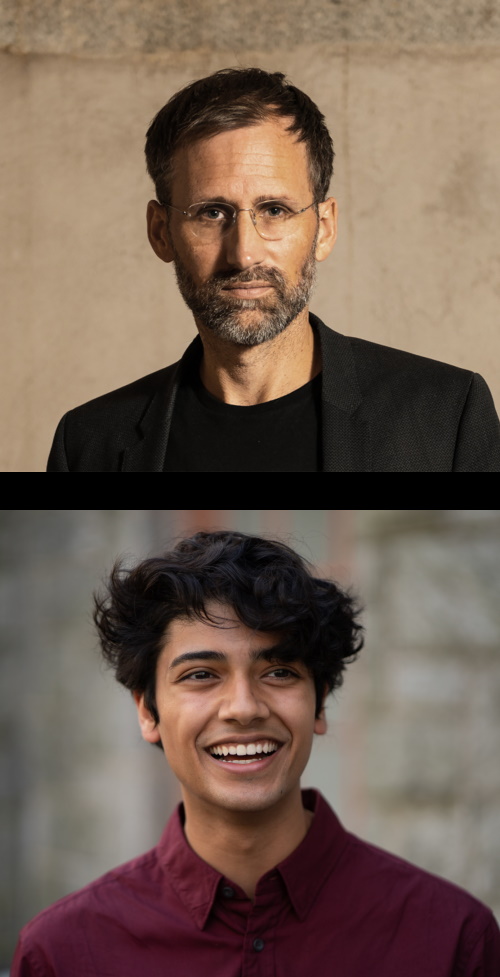 Dr Philipp Rode, Executive Director, LSE Cities, London School of Economics and Political Science, UK
Dr Philipp Rode, Executive Director, LSE Cities, London School of Economics and Political Science, UK
Sudeep Bhargava, Researcher, LSE Cities, London School of Economics and Political Science, UK
Fields of research: Urban studies, hybrid cities
Research project: Investigating the relationship between physical and digital spaces in cities
Funder: Ove Arup Foundation
About urban studies
Urban studies researchers investigate how cities develop and change over time, physically, socially and culturally. They may focus on many different topics including transport, housing, energy, business, culture or politics. There are many opportunities within the field of urban studies to influence the big problems facing the world, including climate change, pandemics and social unrest. For example, remote working played a pivotal role in the world’s response to COVID-19, and it can also reduce a company’s carbon footprint.
“However, there are also considerable risks that this transition towards hybridity creates,” warns Philipp. “For example, new vulnerabilities such as cyber insecurity and cyber-attacks, and a society that is disconnected and retreats from building relationships with neighbours and local communities.”
What are some of the challenges involved in researching hybrid cities?
The field of urban studies has been slow to recognise the influence that virtualisation is having on cities. Traditionally, researchers have focused on the physical geography of cities, so they view the virtual aspects as a insignificant, and do not always want to engage with them. “Few urban scholars and thought leaders really engage and proactively get involved with hybridity,” says Philipp. “A degree of naivety exists among the research community, leading them to believe that the physical geography of cities is so overpowering that it will never be reduced in importance.” In reality, hybrid cities are becoming the new normal and the boundary between physical and digital spaces is becoming increasingly blurred.
There are also challenges around communication and data gathering. “There’s a lack of communication between the engineers that are developing these hybrid technologies and those that research their effects,” explains Sudeep. “And then there’s the issue of harnessing real-time data and not relying on what we’ve seen in the past, especially due to the constant disruptions and ongoing crises in cities around the world.”
Pathway from school to urban studies
Traditional routes into urban studies include studying geography, urban planning or architecture at school and university. However, urban studies combines many fields, so there are different routes depending on your interests.
Engineering is intimately connected to urban studies. You could study physics and mathematics at school, leading to a degree in engineering that focusses on transport or energy-related topics. Computer science may also be useful.
Humanities, such as history and anthropology, and art are also relevant, since writing about and studying the cultures of cities is a major part of urban studies.
Explore careers in urban studies
Besides being an academic researcher, you could work for a private company in the architecture, urban planning or engineering industries. There are also consultancy firms offering services in relation to urban planning, infrastructure and economic development.
Get in touch with the urban studies department at your local university to see if you can talk to a researcher or academic about careers in the industry.
The London School of London School of Economics and Political Science runs a public lecture program (www.lse.ac.uk/cities/events/public-events) in person and online, where you can listen to interesting speakers in the field. Many other universities with urban studies researchers do the same.
Meet Philipp
I’m particularly worried about children and youths no longer having the opportunity to physically enjoy and explore cities independent of parents and supervision. We have become very constrained in this regard due to road safety and security concerns, and also as a result of internet and social media use.
Transport has always fascinated me. Unfortunately, it is one of the sectors that is still not on track to reach its decarbonisation commitments of the 2015 Paris agreement. Thinking about how mobility and transport relate to cities has resulted in most of the work I’ve conducted so far.
Setting up an Executive MSc in Cities degree has been a big achievement for me and our team. The course has been taken by people in their mid-30’s all the way up to their 70’s. I have also been involved in many global initiatives, reports and conferences with decision makers, academics and community leaders, helping to create plans for sustainable cities. In the future I want to help communities feel positive about the transitions that are necessary to achieve sustainability.
The keywords for me are ‘urban’ and ‘nature’, so I enjoy combining cities with activities that bring me closer to nature. I enjoy walking, flying, skiing and hiking in the mountains.
Philipp’s top tips
Try to do well with whatever opportunities you are given, however big or small, and contribute to the best of your abilities.
Follow your interests and make them a priority. It’s easy to motivate yourself to work on subjects you care about.
Look out for like-minded people. Understanding what you appreciate with your colleagues and collectively working on those issues can be very rewarding.
Meet Sudeep
I have a communications and digital media background and I am excited by the opportunities to integrate new technologies into our lives in cities. I want to understand how people’s behaviours and perceptions are changing, and how we can use that to create new opportunities.
I’m interested in how communities organise themselves, and how people socialise through and around media use. How do our digital and physical lives complement and contradict each other? How do urban communities engage with digital media platforms, and how does that affect their political awareness and social identity?
I love being able to talk to people with so many different backgrounds and skills. It’s really exciting to see how all these ideas and people interact. In the future, I plan to pursue a PhD related to urbanism, communications or digital cultures.
I like to spend my time reading, watching films and spending time with my close friends. I prefer to do these activities around different parts of London, getting to experience different neighbourhoods, parks and areas.
Sudeep’s top tip
Don’t be afraid to pursue the things that interest you, and don’t be afraid to make space for your interests in areas where none exists. The future of scholarship, urban planning and technology are in the hands of young people!
Do you have a question for Philipp and Sudeep?
Write it in the comments box below and Philipp and Sudeep will get back to you. (Remember, researchers are very busy people, so you may have to wait a few days.)
Discover more about how our built environments affect our lives and our communities:

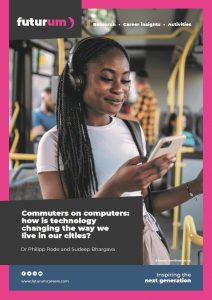
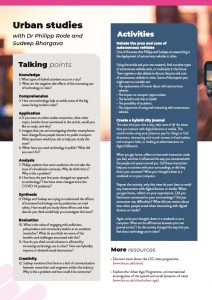




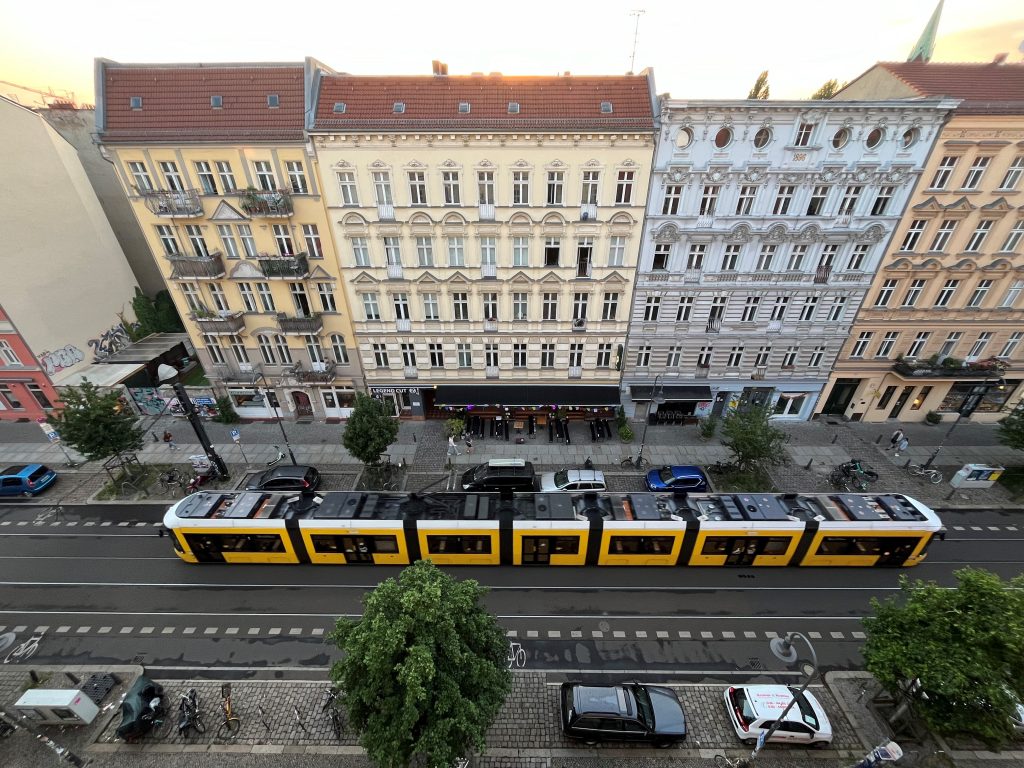

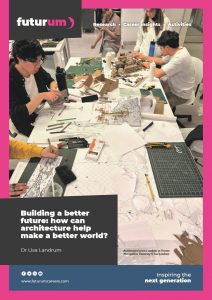
0 Comments